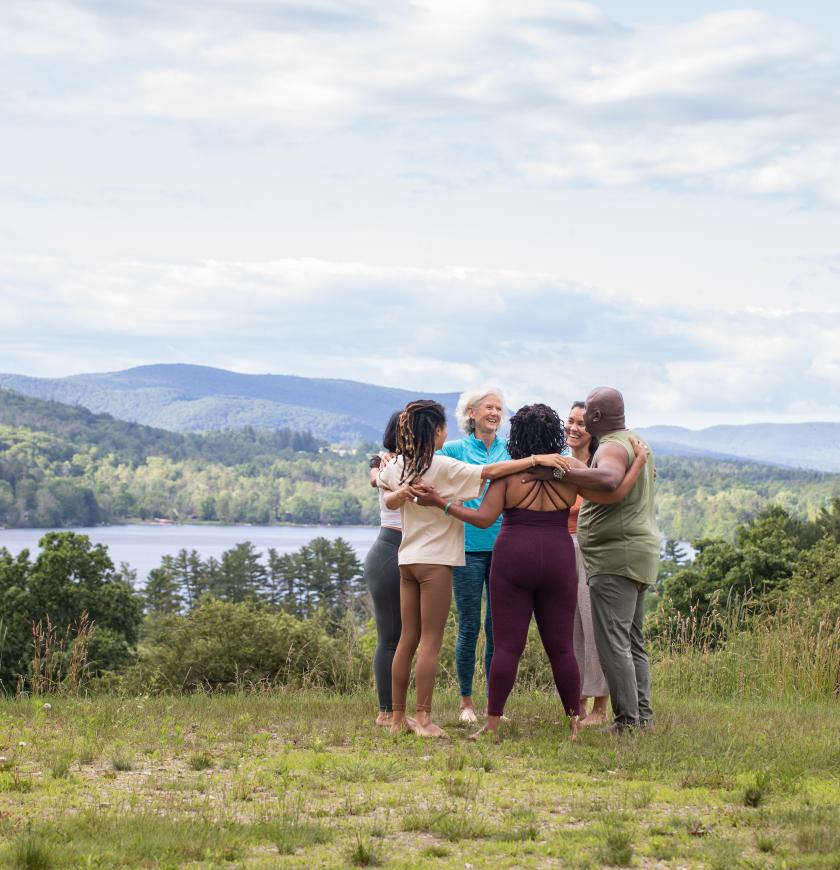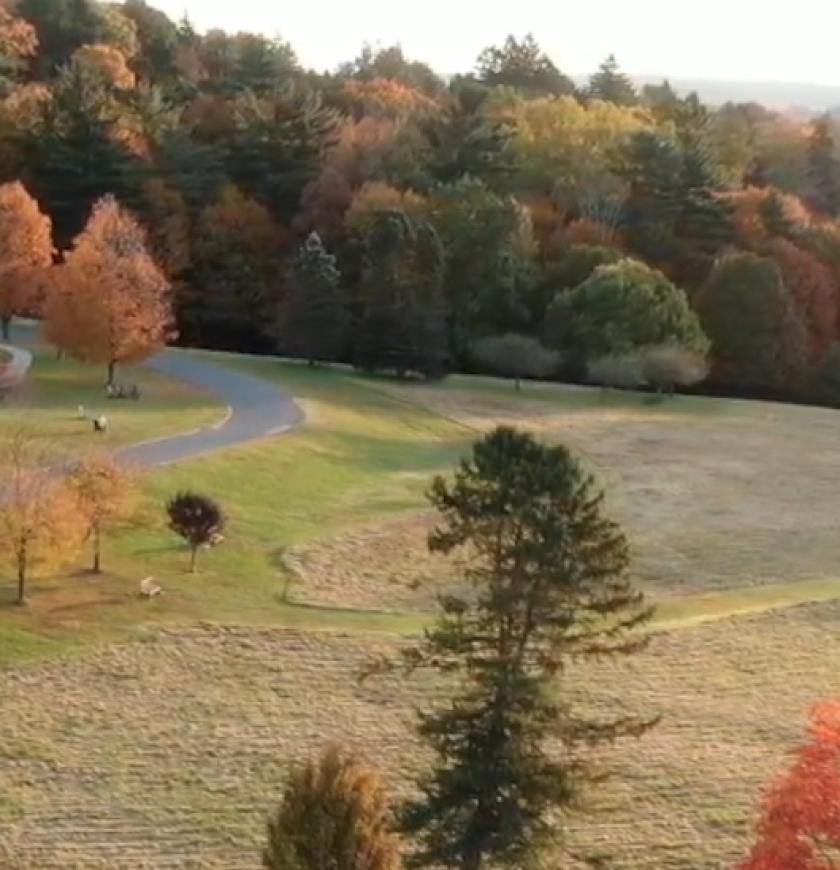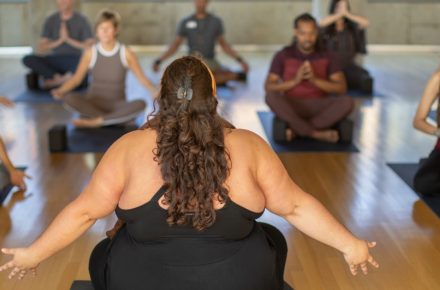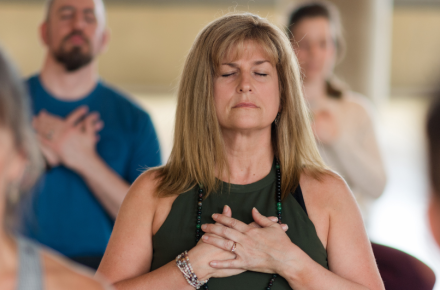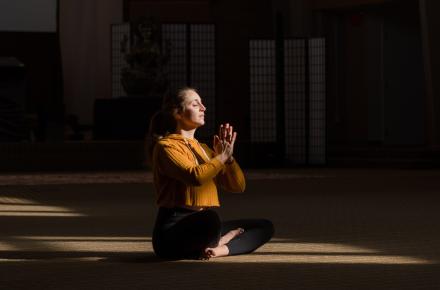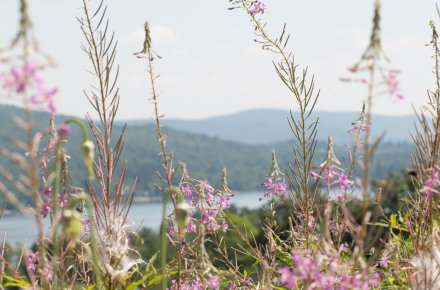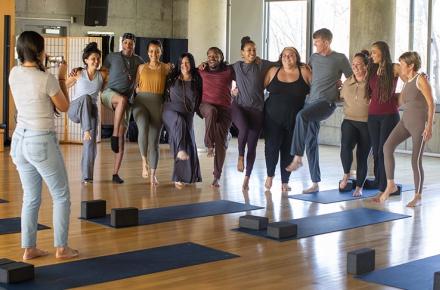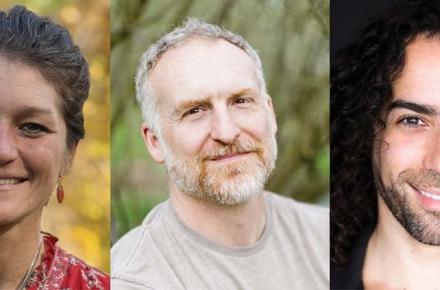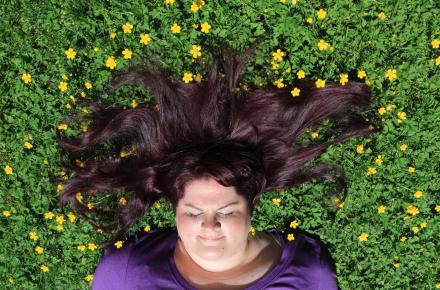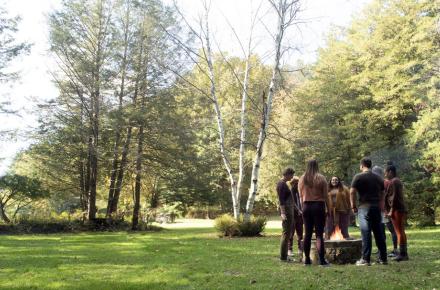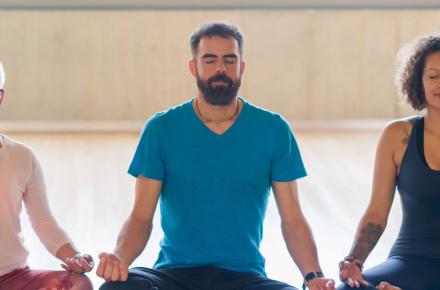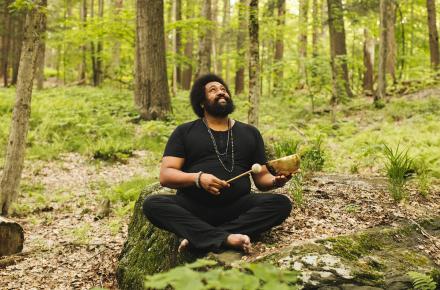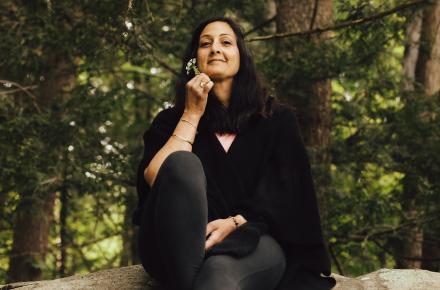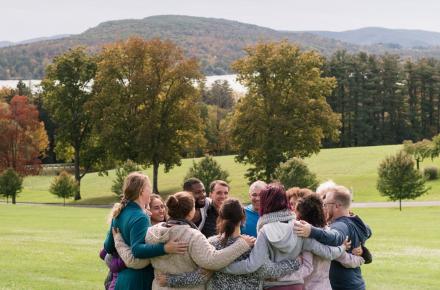Practical Magic: A Q&A with Martha Beck

Martha Beck earned three Harvard degrees before deciding to spend her life helping others tap into the deep, wordless wisdom already within them. A New York Times best-selling author, she has been referred to as “one of the best-known life coaches in America” by Psychology Today, USA Today, and NPR. In this interview with Kripalu, Martha talks about why we need life coaches, what we can learn from ancient cultures, and how to take the first step toward a life that’s all rest and play.
What drew you to the work you do?
When I was teaching at Thunderbird, the American Graduate School of International Management, my students started asking me for advice about their lives outside of school. This was 17, 18 years ago, before there was such a thing as life coaching. I had thought about being a therapist, but I wanted to work with people who were mentally robust and healthy—I didn’t want to put people back together, I wanted to help them have the best possible life. I think of therapists like doctors and life coaches more like personal trainers.
Why do you think life coaching has become so popular in recent years?
There are a lot of people who are feeling lost or stuck. I believe it’s partly because the structures of our society have reached a point where they’re beginning to break apart. New technologies are demolishing entire industries. There’s a sea change underway, and people want guides to help them navigate it.
I wrote my book Finding Your Way in a Wild New World on the premise that ancient wisdom is what we need to guide this culture that we’ve created. Our culture has a powerful engine, but no steering wheel or compass or charts, so we’re destroying things randomly. I was looking for wisdom to help us guide our modern technologies—not to destroy them or turn back the clock, but to help us steer them.
You write about accessing ancient magical skills and creativity in our everyday lives. How do you define “magic”?
I agree with [science fiction author] Arthur C. Clarke that any sufficiently advanced technology is indistinguishable from magic. If we showed a rainforest shaman an iPhone, he would see it as magic, and we’d say no, it’s just technology. If he brewed us a powerful psychoactive drink and we went on a journey and had visions, we’d see it as magic, and he’d say no, it’s just technology. There are technologies our culture doesn’t recognize, and I call them magic because they seem so to us.
I’m fascinated by primitive, or pre-modern, cultures. When I was working on my undergraduate degree in Chinese at Harvard, I spent about 18 months in Southeast Asia, and I’ve also researched Australian aboriginal, Native American, and African cultures. What I found was that, wherever you go in the world, there are universal rituals. I boiled it down to four processes I saw again and again.
The first is wordlessness, a practice that takes you out of the left side of your brain and into the right hemisphere, which is largely nonverbal and connective rather than analytical. It could be dancing, movement, psychoactive plants, meditation. Mystics from all traditions talk about dropping into that space of oneness. Wordlessness logs you onto an “energetic Internet” and oneness means you can communicate through it, like sending e-mail—you’re no longer separate, so you can easily get a message to your brother across the jungle.
The second is imagination, using the creative power of the mind within the state of wordlessness and oneness. Many people use it to imagine material objects, trying to force what they think they want into being, and that just doesn’t work. But if you can drop into the state of wordless presence and feel this incredible love that is the medium of communication within us, then it works. As far as we know, we are the only animal that can imagine.
The third is forming—bringing what you imagined into three-dimensional reality. And then there’s rest and play, which are necessary in order to thrive. In the state of love, you don’t force yourself to grind through life.
You talk about life being all rest and play, nothing else. How does that work on a day-to-day basis, with all our mundane responsibilities?
It doesn’t mean it’s all just sitting in a beach chair getting smashed on margaritas—that’s a cultural idea of rest. When we do what we love, everybody’s playing, and we get a lot of what you could call “work” done. You think of ways to make “work” more appealing and more playful. If I get bored when I’m on the treadmill, I can try playing music or listening to a book on tape.
The first step is to pay attention to what’s happening in the body. Your body will resist a life or a decision that’s wrong for you. Live like you’re playing the “you’re getting warmer, you’re getting colder” game. Whenever you have the tiniest choice—what to have for breakfast, what e-mail to answer first—choose what brings the most lightness and opening in the body. When it brings tension and a sense of contraction, choose something a little less “cold.” Tiny decision by tiny decision, you will change the course of your life.
© Kripalu Center for Yoga & Health. All rights reserved. To request permission to reprint, please e-mail editor@kripalu.org.
